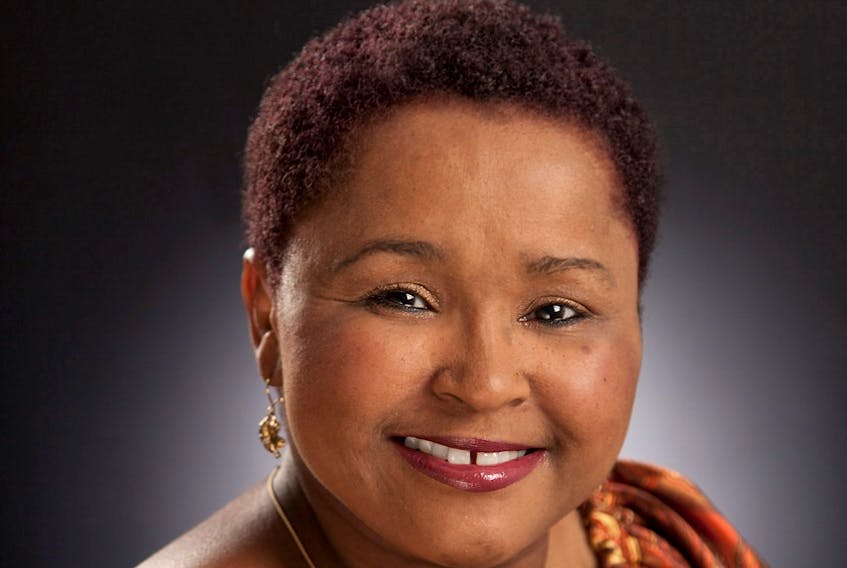Over the past few days, thousands of people have come together to protest police brutality and institutionalized racism in downtown Halifax.
The death of George Floyd in Minnesota and, more recently, the death of Regis Korchinski- Paquet in the presence of police officers in Toronto have rubbed salt into the open wounds of people of African descent in Nova Scotia.
“I think we’re questioning the whole system and a whole broad mechanism by which black lives would be valued,” says Tari Ajadi, a doctoral candidate in political science at Dalhousie University.
It’s the system that allowed the town of Shelburne to place a landfill near the town’s south end, where a majority of African Nova Scotian families lived. While the dump was closed in 2016, concerns remain that burning waste at the facility for years may have led to increased cancer rates in the community.
It’s also the system that has allowed the Halifax Regional Police to discriminate against and racially profile black people in Nova Scotia, according to several accounts from black Nova Scotians over the years, and the 2019 Wortley report.
“Police brutality and surveillance creates a public health crisis for black people,” says Ajadi who is also a board member of the Health Association of African Canadians.
Ajadi says it’s a crisis in two ways. It physically harms people and results in locking them in jail where they may not have adequate health care, especially during a pandemic like COVID-19. It also reduces the community’s trust for the police and the government.

“I can guarantee you that, people of African descent, even if we’re not dying by the hands of police, are dying because of illness based on race,” says Barb Hamilton-Hinch, assistant professor at the school of health and human performance at Dalhousie University
In 2018, the Canadian Public Health Association declared that racism is a public health issue in Canada.
“Unfortunately Canada remains a nation where a person’s colour, religion, culture or ethnic origin are determinants of health that result in inequities in social inclusion, economic outcomes, personal health, and access to and quality of health and social services,” the statement reads.
It goes on to add that people who experience racism have poor mental and physical health outcomes, including hypertension, low birth weight, heart disease and diabetes.
“Our health has been jeopardized long before George Floyd,” says Hamilton-Hinch.
Hamilton-Hinch says access to health care has always been restricted for people of African descent in Nova Scotia.
“Very few communities are located close to any type of health facility,” she says.
North Preston and East Preston, two of the oldest and largest black communities in Nova Scotia, have community health and wellness centres, but they don’t operate full time. This means that people who get sick when the clinic is not operating should look for alternatives.
For other communities without health-care centres, accessing care requires using transportation. It’s a challenge because not all black communities have uninterrupted, safe public transportation and bike lanes.
Ajadi, who was born to Nigerian parents in the United Kingdom, came to Nova Scotia a few years ago. But he sees the effect of neglecting black communities and says the Halifax Regional Municipality should make their active transportation policies more inclusive.
“If I was living in Cherry Brook, I’d have one bus every hour. I could be stranded without being able to get home,” he says.
Health-care inequities don’t stop at the ability to access services.
Hamilton-Hinch says the stereotypes attached to people of African descent affect the quality of care they receive. For example, pain medication is not given to Black people as quickly as they need it.
“There’s also the belief that we’re not educated,” she says. “And when we’re advocating for ourselves, sometimes it’s misinterpreted as being angry when we’re asking for the exact same services that other people are getting.”
Several studies have revealed racial disparities in pain management for Black patients and patients of colour compared to white patients.
A 2016 study by researchers at the University of Virginia has found that many white medical students and residents hold false and fantastical beliefs such as: “Blacks’ nerve endings are less sensitive than whites.” This leads them to rate the pain of Black people as less severe. The study found that those students and residents were less accurate in their treatment recommendations for Black patients 15 per cent of the time.
“Some of us may not go to the hospital as soon as we have pain because we know how we’re going to be treated or dismissed,” says Hamilton-Hinch.
The collective negative experiences of African Nova Scotians in health-care settings across generations have also led to historical trauma.
“If you see your parents and your grandparents not rushing to the hospital when they have illness and they’ll tell you why, you’re not going to rush to the hospital,” she says.
During Tuesday’s COVID-19 briefing, Premier Stephen McNeil acknowledged the systemic racism taking place in Nova Scotia. Ajadi says that was “fantastic,” but not enough.
“You can’t just say systemic racism and then absolve institutions of the responsibility of actually diminishing, reducing and deconstructing that racism,” he says. “You can’t just say it and hope it goes away.”
While there are several areas for improvement, Ajadi points to the lack of clear policy that outlines how the province evaluates where to place health services. This results in health care that’s inaccessible to Black communities. He says all health-care policies must take into consideration how racism could be affecting health outcomes.
“(Otherwise), we’re developing policy that will be actively harmful to Black people,” he says.









